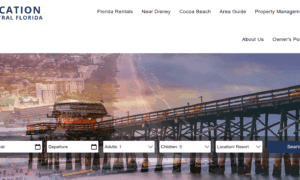Are you a natural at providing exceptional customer service and thrive in fast-paced environments? Do you have a passion for creating memorable experiences for guests from around the world? If so, then a career in hotel management might be your perfect fit! From managing luxury resorts to overseeing bustling city hotels, the diverse world of hotel management offers endless opportunities to showcase your skills and talents. In this blog post, we will explore various career paths within the industry, helping you uncover your ideal role and pave the way towards an exciting and rewarding future in hotel management.
Introduction
Hotel management is a thriving industry that offers endless opportunities for career growth and development. With the rise of international travel and increasing demand for quality hospitality services, the hotel management sector has become one of the most sought-after industries in recent years.
The hotel management industry encompasses a wide range of job roles, from front desk managers to food and beverage directors, event coordinators to revenue managers, and many more. This diverse field requires individuals with a unique set of skills and talents who can handle various responsibilities effectively.
The different career paths in hotel management are:
Hotel management is a diverse field that offers a wide range of career paths for individuals with different interests and skill sets. Whether you are passionate about customer service, logistics, or finance, there is a role in hotel management that can suit your strengths and goals.
Here are the different career paths in hotel management that you may want to consider:
1. Front Office Management
Front office managers are responsible for overseeing the day-to-day operations of the front desk, reservations department, and guest services. They play a crucial role in ensuring smooth check-ins and check-outs, handling guest complaints, managing room availability, and coordinating with other departments to provide excellent customer service. This role requires strong communication skills, attention to detail, and the ability to handle high-pressure situations.
2. Food and Beverage Management
Food and beverage managers oversee all aspects of food service within a hotel, including restaurants, bars, banquets, and room service. They are responsible for creating menus, managing inventory levels and costs, training staff on proper food-handling procedures, and ensuring high-quality dining experiences for guests. This role requires creativity in menu planning as well as strong leadership skills to manage a team of servers and chefs.
3. Housekeeping Management
Housekeeping managers oversee the cleanliness of all areas within a hotel, including guest rooms, public spaces such as lobbies and hallways, and laundry services. They are responsible for setting cleaning standards, managing schedules for housekeeping staff members, and ordering supplies needed for their department’s operations while adhering to the hotel’s budget. This role requires excellent organizational skills and attention to detail.
4. Sales and Marketing Management
Sales and marketing managers are responsible for promoting the hotel, attracting new customers, and increasing revenue through various marketing strategies. They work closely with other departments to create packages and promotions, manage social media accounts, and plan events to attract guests. This role requires strong communication skills, creativity, and a good understanding of the target market.
5. Revenue Management
Revenue management involves forecasting demand for hotel rooms, setting prices accordingly, and maximizing occupancy levels to increase revenue. Revenue managers analyze data such as booking trends, competitor pricing, and market demand to make pricing decisions that will maximize profits for the hotel. This role requires analytical skills, financial acumen, and the ability to work under pressure.
6. Human Resources Management
Human resources managers handle all aspects of employee relations within a hotel, including recruiting, hiring, training, benefit administration, performance evaluations, and creating policies and procedures. They also ensure compliance with labor laws and regulations. This role requires strong interpersonal skills and the ability to maintain a positive work environment for all employees.
7. Facilities Management
Facilities managers oversee all physical aspects of a hotel, such as the maintenance of buildings, equipment, and grounds. They are responsible for managing a team of maintenance staff, scheduling repairs and renovations, and ensuring the safety and security of guests and employees. This role requires strong problem-solving skills and knowledge of building systems.
8. Event Planning Management
Event planning managers are responsible for coordinating meetings, conferences, weddings, and other events hosted at the hotel. They work closely with clients to understand their needs and preferences, create event timelines, manage budgets, and oversee all logistics from set-up to clean-up. This role requires excellent organizational skills, creativity, and the ability to handle multiple tasks simultaneously.
Skills and qualifications needed for each job role
Skills and qualifications are essential factors to consider when exploring career paths in hotel management. Each job role within the industry requires a unique set of skills and qualifications that make individuals stand out as top candidates for the position.
1. Front Desk Manager:
As the face of the hotel, a front desk manager must possess excellent communication and customer service skills. They need to be able to handle various tasks simultaneously while maintaining a welcoming attitude towards guests. A degree in hospitality or business is usually preferred, along with prior experience in customer service or front desk operations.
2. Executive Chef:
The executive chef is responsible for overseeing the entire kitchen and food operations of a hotel. This role requires strong leadership skills, creativity, and an extensive knowledge of food preparation techniques and safety standards. A culinary degree from an accredited institution or equivalent work experience is a must for this position.
3. Event Coordinator:
Event coordinators are responsible for planning, organizing, and executing all types of events at the hotel, from weddings to corporate meetings. This role requires exceptional organizational abilities, great attention to detail, strong interpersonal skills, and the ability to work under pressure. A degree in hospitality management or event planning is preferred but not always required.
4. Catering Sales Manager:
A catering sales manager has a significant impact on the success of any event hosted at the hotel. They need to have excellent negotiation skills, sales experience, strong communication abilities, and be able to build relationships with clients effectively. A bachelor’s degree in marketing or hospitality management is usually preferred for this role.
5. Housekeeping Manager:
As the head of the housekeeping department, a housekeeping manager needs to have exceptional leadership skills and be able to manage a team effectively. They must also possess excellent time management and organizational abilities and be familiar with cleaning procedures and standards. A degree in hospitality or a related field is preferred, along with prior experience in housekeeping.
6. Revenue Manager:
A revenue manager plays a critical role in maximizing profits for the hotel through strategic pricing and inventory management. This role requires analytical skills, attention to detail, and the ability to make data-driven decisions. A bachelor’s degree in finance, business, or hospitality management is usually required for this position.
Personalities that excel in each role
When it comes to pursuing a career in hotel management, there is no one-size-fits-all approach. Different roles within the industry require unique skill sets and personalities. It’s essential to find the perfect fit for your strengths and interests to excel in your chosen role.
Here are some of the key personality traits that tend to thrive in each role within hotel management:
1. Hotel General Manager:
As the leader of the entire hotel operation, a general manager needs to be a strong, confident, and decisive individual. They must have excellent communication skills to effectively manage a diverse team and interact with guests from all walks of life. A successful GM is also highly organized, detail-oriented, and able to handle multiple tasks simultaneously while maintaining composure under pressure.
2. Front Desk/Receptionist:
Front desk staff is often the first point of contact for guests, making them crucial members of any hotel team. Being friendly and welcoming is an essential quality for this role, as is having excellent customer service skills and being able to multitask efficiently. A front desk/receptionist should possess exceptional organizational skills, as they are responsible for managing reservations, handling guest inquiries and complaints, and coordinating with other departments.
3. Housekeeping Staff:
The housekeeping department plays a vital role in ensuring guest satisfaction by maintaining cleanliness throughout the hotel. Individuals who thrive in this role are detail-oriented, self-motivated perfectionists who take pride in their work. They must have physical stamina, as this job can be physically demanding, and a positive attitude is crucial to maintaining a pleasant work environment.
4. Food and Beverage Manager:
Food and beverage managers are responsible for overseeing all aspects of the hotel’s dining operations, including restaurants, banquets, and room service. This role requires strong leadership skills as well as excellent communication and decision-making abilities. A successful food and beverage manager should also have a passion for hospitality, creativity in menu development, and an eye for detail in maintaining quality standards.
5. Event Coordinator:
Event coordinators are responsible for planning and executing various events at the hotel, from weddings to corporate meetings. This role requires excellent organizational skills, attention to detail, and the ability to multitask under pressure. An event coordinator must also be creative, personable, and have exceptional communication skills to work with clients and vendors effectively.
Tips for choosing the right career path in hotel management
Choosing the right career path in hotel management can be a daunting task, as the hospitality industry offers a wide range of job opportunities. It is crucial to have a clear understanding of your interests, strengths, and goals before embarking on your career journey. Here are some tips that can help you choose the right career path in hotel management:
1. Research Different Career Options: The first step towards choosing the right career path in hotel management is to research different job roles and their responsibilities. This will give you a better understanding of what each position entails and which one aligns with your skills and interests.
2. Consider Your Strengths: Identifying your strengths is essential to choosing the right career path. If you excel at customer service, then roles such as front desk manager or guest relations manager may be suitable for you. If you have excellent organizational skills, then positions like event coordinator or revenue manager could be a good fit.
3. Understand Your Personality: Hotel management requires individuals with strong interpersonal skills and adaptable personalities. Consider taking personality tests to determine if you possess qualities such as leadership, communication, problem-solving abilities, and team-player mentality.
4. Gain Relevant Experience: One of the best ways to determine which career path in hotel management is suitable for you is by gaining relevant experience through internships or part-time jobs. This will give you hands-on experience and exposure to various departments within a hotel, helping you decide which role suits you best.
5. Network with Professionals: Reach out to professionals working in the hospitality industry to gain insights into their roles, career paths, and experiences. Networking can also open up potential job opportunities and help you make informed decisions about your career.
6. Consider Your Long-Term Goals: When choosing a career path in hotel management, it’s essential to consider your long-term goals and where you see yourself in the future. Do you aspire to become a general manager or own your own hotel someday? Understanding your long-term goals can help guide your decision to select the right career path.
7. Take Advantage of Professional Development Opportunities: The hospitality industry is constantly evolving, and it’s crucial to stay updated with the latest trends and skills. Take advantage of professional development opportunities such as workshops, seminars, and certifications to enhance your knowledge and skills in specific areas of interest.
Conclusion
Choosing a career path is a personal decision that requires careful consideration. Don’t be afraid to seek advice from mentors, family, or friends who have experience in the hospitality industry. Ultimately, choose a career path that aligns with your interests, strengths, and long-term goals for a fulfilling and successful career in hotel management.



































